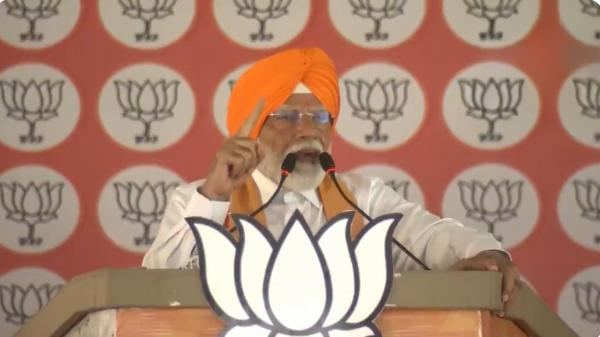In a fiery address at a public rally in Patiala, Punjab, Prime Minister Narendra Modi stirred controversy with his remarks, attributing the long-standing barrier to visiting Kartarpur Sahib to the partition orchestrated by the Congress party. Modi’s statements, made in the context of historical events and the recent inauguration of the Kartarpur Sahib corridor, have ignited a political storm, drawing swift reactions from various quarters.
The Prime Minister asserted, “Congress did the partition of the country in such a way that for 70 years, we had to look at Kartarpur Sahib through binoculars.” He then proceeded to evoke the memory of the Bangladesh Liberation War, highlighting the surrender of over 90,000 Pakistani soldiers. Modi suggested that if he had been in power during that period, he would have seized control of Kartarpur Sahib and released the surrendered soldiers in exchange.
While acknowledging that he couldn’t fulfill this hypothetical scenario, Modi emphasized his government’s efforts in facilitating the opening of the Kartarpur Sahib corridor. “I could not do that but I did as much as I could. Today, the Kartarpur Sahib corridor is active for the devotees to visit there,” he declared, portraying the corridor’s inauguration as a significant achievement.
The Kartarpur Sahib corridor, inaugurated in November 2019, connects the Sikh shrines of Dera Baba Nanak Sahib in Gurdaspur district of Punjab, India, to Gurdwara Darbar Sahib Kartarpur in Narowal district, Pakistan. This initiative was hailed as a rare instance of cooperation between the two neighbors, allowing Sikh pilgrims from India to visit the historic gurdwara in Pakistan without requiring a visa.
However, Modi’s remarks attributing the obstacles in visiting Kartarpur Sahib to Congress’ partition strategy have been met with criticism from opposition parties and historians. Critics argue that such statements oversimplify the complex historical context of partition and its aftermath, while also politicizing a religious and humanitarian initiative.
Reacting to Modi’s comments, Congress leaders accused him of distorting history for political gains and urged him to refrain from such divisive rhetoric. Historians have also weighed in, cautioning against the oversimplification of historical events and emphasizing the need for a nuanced understanding of the partition’s complexities.
Meanwhile, Modi’s supporters have rallied behind him, lauding his government’s efforts in promoting religious tourism and facilitating the Kartarpur Sahib corridor. They view his remarks as a testament to his commitment to correcting historical injustices and fostering closer ties between India and its neighbors.
As the political debate rages on, Modi’s remarks have reignited discussions on the legacy of partition and its implications for contemporary politics. While the Kartarpur Sahib corridor remains a symbol of cross-border cooperation and religious harmony, the Prime Minister’s remarks have underscored the deep-seated divisions and narratives surrounding the partition of India.



